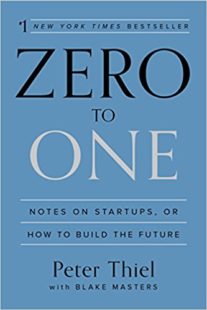Education is a powerful tool that shapes individuals and societies, and it’s essential to recognize the signs of a poorly educated individual. In a world characterized by constant advancements and evolving demands, being able to identify these telltale signs can help us address the underlying issues and work towards a more educated society. The effects of a lack of education can manifest in various ways, from limited critical thinking skills to a lack of understanding in essential subjects.
In this article, we will explore the key signs that can indicate someone is poorly educated. By understanding and recognizing these indicators, we can begin to bridge the gaps in education and empower individuals to reach their full potential. From poor communication skills to limited problem-solving abilities, we will delve into the various aspects that can hinder someone’s educational development.
Join us as we shed light on the importance of education and how we can collectively work towards creating a better-informed and educated world. Together, we can break barriers, transform lives, and build a brighter future through the power of education.

Zero to One
by Peter Thiel
⏱ 15 minutes reading time
🎧 Audio version available
The importance of education
Education serves as the foundation for personal growth and societal progress. It equips individuals with the knowledge, skills, and tools necessary to navigate the complexities of the world. A well-rounded education not only imparts subject-specific knowledge but also fosters critical thinking, creativity, and problem-solving abilities. It empowers individuals to make informed decisions, pursue their passions, and contribute meaningfully to their communities.
The impact of a poorly educated individual
The consequences of a lack of education can be far-reaching and profound. Poorly educated individuals often struggle to fully comprehend and engage with the world around them. They face difficulties in various aspects of life, such as securing stable employment, making informed decisions, and participating in meaningful social interactions. These limitations not only hinder personal growth but also contribute to societal inequalities and hinder overall progress.
Signs of a poorly educated individual
Lack of basic knowledge and skills
One of the primary signs of a poorly educated individual is a lack of basic knowledge and skills. This includes fundamental concepts in subjects such as mathematics, science, and language arts. Without a solid foundation in these areas, individuals may struggle to comprehend more complex concepts and engage in higher-level thinking. This limits their ability to contribute meaningfully to intellectual discussions and hampers their overall educational development.
Difficulty in critical thinking and problem-solving
Critical thinking and problem-solving skills are essential for navigating the challenges of everyday life. However, poorly educated individuals often struggle in this area. They may find it difficult to analyze information critically, evaluate multiple perspectives, and arrive at logical conclusions. This inability to think critically hinders their ability to make informed decisions, solve problems, and adapt to changing circumstances.
Limited vocabulary and communication skills
Effective communication is a crucial skill in both personal and professional settings. However, poorly educated individuals often struggle with limited vocabulary and inadequate communication skills. They may find it challenging to express their thoughts and ideas clearly, resulting in misunderstandings and miscommunication. This can hinder their ability to build strong relationships, succeed in the workplace, and engage in meaningful conversations.
Lack of cultural awareness and global perspective
A well-rounded education goes beyond academic knowledge and encompasses an understanding of different cultures and perspectives. Poorly educated individuals may lack cultural awareness and a global perspective, limiting their ability to appreciate diversity and interact with people from different backgrounds. This can lead to biases, prejudices, and a narrow worldview, hindering their personal growth and ability to contribute positively to a multicultural society.
Inability to adapt to new technologies and advancements
In today’s rapidly evolving world, technological advancements are reshaping industries and societies. However, individuals who are poorly educated may struggle to adapt to new technologies and embrace digital advancements. This can limit their opportunities for personal and professional growth, as many jobs now require basic digital literacy skills. Without the ability to navigate technology, they may find themselves left behind in an increasingly digital world.
Lack of basic knowledge and skills
Education plays a vital role in personal and professional growth. It empowers individuals to unlock their full potential, pursue their passions, and achieve their goals. A well-rounded education not only equips individuals with the necessary knowledge and skills but also fosters critical thinking, creativity, and adaptability. It opens doors to new opportunities, broadens horizons, and enables individuals to contribute meaningfully to society.
Difficulty in critical thinking and problem-solving
Recognizing the signs of a poorly educated individual is the first step towards addressing the underlying issues and creating a more educated society. By investing in education, we can bridge the gaps, empower individuals, and unlock their full potential. It is through education that we can break barriers, transform lives, and build a brighter future for all. Let us work together to prioritize education, advocate for equal access, and create an environment where every individual has the opportunity to thrive.
Education matters. It is not just about acquiring knowledge; it is about shaping individuals and societies. By recognizing the signs of a poorly educated individual, we can take the necessary steps to address the gaps and provide equal educational opportunities for all. Let us embrace the power of education, invest in its potential, and work towards a better-informed and educated world. Together, we can make a difference.
Remember, education is not a privilege; it is a fundamental right that every individual deserves. Let us stand together and ensure that no one is left behind in the pursuit of knowledge and personal growth. Education holds the key to a brighter future, and it is up to us to unlock its full potential.
Limited vocabulary and communication skills
Critical thinking and problem-solving skills are crucial for navigating the complexities of life. A poorly educated individual often struggles in these areas, finding it challenging to analyze situations objectively and develop effective solutions. They may rely heavily on others for guidance and lack the ability to think independently.
One of the telltale signs of a lack of critical thinking skills is an inability to evaluate information critically. Poorly educated individuals may accept information at face value without questioning its validity or considering alternative perspectives. This limited ability to think critically prevents them from fully understanding complex issues and making informed decisions.
Furthermore, a poorly educated person may struggle with problem-solving. They may find it difficult to break down a problem into manageable parts or come up with creative solutions. This can hinder their personal and professional growth, as problem-solving is a crucial skill in various fields.
In order to address this issue, it is crucial to prioritize critical thinking and problem-solving skills in education. By providing individuals with the necessary tools to analyze information, think critically, and solve problems, we can empower them to navigate the challenges of the modern world.
Lack of cultural awareness and global perspective
Effective communication is a cornerstone of success in both personal and professional realms. However, a poorly educated individual often exhibits limited vocabulary and communication skills, which can hinder their ability to express themselves clearly and engage in meaningful conversations.
A shallow vocabulary restricts an individual’s ability to articulate their thoughts and ideas effectively. They may struggle to find the right words to express themselves, leading to miscommunication and a lack of clarity. This limitation can significantly impact a person’s confidence and ability to connect with others.
Furthermore, poor communication skills can hinder an individual’s chances of success in the professional world. Employers value strong communication skills as they contribute to effective collaboration, customer service, and leadership. Without these skills, individuals may face difficulties in securing employment or advancing in their careers.
To address this issue, it is crucial to prioritize language development and communication skills in education. By providing individuals with opportunities to expand their vocabulary, practice effective communication, and engage in meaningful discussions, we can equip them with the skills necessary for success in all aspects of life.
Inability to adapt to new technologies and advancements
In an increasingly interconnected world, cultural awareness and a global perspective are essential for fostering empathy, understanding, and collaboration. A poorly educated individual often lacks exposure to diverse cultures, traditions, and global issues, which can limit their ability to connect with others and navigate a multicultural society.
A lack of cultural awareness can lead to misunderstandings, stereotypes, and prejudice. Without exposure to different cultures, individuals may struggle to appreciate the richness and diversity of our world. This can hinder their ability to work effectively in diverse teams, build meaningful relationships, and contribute to a globalized society.
Additionally, a global perspective is crucial for understanding global challenges such as climate change, poverty, and human rights issues. Poorly educated individuals may lack the knowledge and understanding necessary to engage in discussions and take action on these pressing issues. This can hinder progress towards a more sustainable and equitable world.
To address this issue, it is crucial to incorporate cultural studies and global perspectives into education. By exposing individuals to different cultures, promoting empathy, and fostering an understanding of global issues, we can create a more inclusive and interconnected society.
Related: Why Sustainable Business Practices are Essential for Long-term Growth
The role of education in personal and professional growth
Technology is transforming the world at an unprecedented pace, and the ability to adapt to new technologies and advancements is crucial for success in the modern era. A poorly educated individual may struggle to keep up with technological advancements, leading to a significant disadvantage in various aspects of life.
One of the telltale signs of a lack of education in this area is resistance or aversion to new technologies. Poorly educated individuals may find it challenging to understand and use new devices, software, or digital platforms, limiting their access to information and opportunities. This can hinder their personal and professional growth, as technology is now integrated into almost every aspect of our lives.
Furthermore, a lack of technological literacy can impact an individual’s ability to participate in the digital economy. As more industries rely on technology, individuals who lack the necessary skills may face difficulties in finding employment or advancing in their careers.
To address this issue, it is crucial to prioritize digital literacy and technological skills in education. By providing individuals with the necessary knowledge and resources to adapt to new technologies, we can empower them to thrive in the digital age.
Investing in education for a brighter future
Education plays a vital role in personal and professional growth. It equips individuals with the knowledge, skills, and mindset necessary to navigate the complexities of life and achieve their goals. By recognizing the signs of a poorly educated individual, we can work towards bridging the gaps in education and empowering individuals to reach their full potential.
Investing in education is not only crucial for individual growth but also for societal progress. A well-educated population contributes to economic development, social cohesion, and democratic participation. By prioritizing education, we can build a brighter future for individuals and communities.
Recognizing the signs of a poorly educated individual is essential for addressing the underlying issues and working towards a more educated society. From limited critical thinking skills to a lack of understanding in essential subjects, the effects of a lack of education can manifest in various ways. By investing in education, prioritizing critical thinking and problem-solving skills, developing effective communication abilities, fostering cultural awareness and a global perspective, and promoting technological literacy, we can break barriers, transform lives, and build a brighter future through the power of education.
What Is Snapreads?

With the Snapreads app, you get the key insights from the best nonfiction books in minutes, not hours or days. Our experts transform these books into quick, memorable, easy-to-understand insights you can read when you have the time or listen to them on the go.


